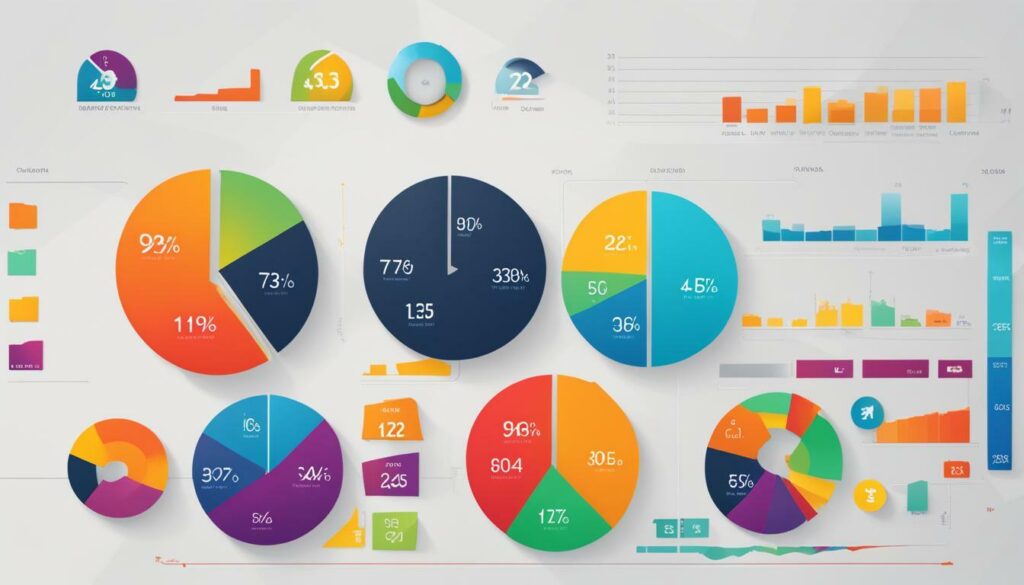Smart Credit Repair Considerations for Freelancers

As a freelancer or self-employed individual, taking proactive steps to improve your credit is crucial for securing financial stability and obtaining necessary financing. Your credit score plays a significant role in determining your eligibility for loans, credit cards, and other forms of financial assistance.
Improving your credit score requires a thorough understanding of the factors that influence it. Key components include your payment history, credit utilization, length of credit history, number of credit inquiries, and types of credit accounts. It is important to obtain a copy of your credit report and carefully review it for accuracy. If you find any errors, it is essential to dispute them to ensure an accurate representation of your creditworthiness.
There are several strategies you can implement to improve your credit score as a freelancer. Catching up on late payments, creating and sticking to a budget, and finding additional sources of income through side hustles can all have a positive impact on your credit. It is also essential to maintain a low credit utilization ratio by keeping your credit card balances low.
🚨 TUIC Errors + Low Credit Score?
CreditScoreIQ helps you build credit faster by reporting utility bills to all 3 bureaus—while you dispute errors.
Start Building Credit Today →Paying your bills on time is crucial for establishing a positive payment history. Many employers and landlords consider credit scores when making decisions, so maintaining a good credit score can improve your chances of securing employment, housing, and other opportunities.
When it comes to credit repair, you have the option to use credit repair services or credit repair apps. These tools can help automate the process and guide you through the necessary steps. However, it is important to be cautious of scams and choose reputable companies that can provide legitimate assistance.
Alternatively, you can take a self-management approach to credit repair. This involves disputing errors on your credit reports and effectively managing your personal and business finances. It is crucial to separate your personal and business finances, establish a clear payment trail, avoid mismanaging your earnings, file taxes on time, and actively monitor and maintain a strong credit score.
Key Takeaways:
- Improving your credit score is essential for freelancers looking to secure financing.
- Familiarize yourself with the factors that influence your credit score, including payment history, credit utilization, credit history length, credit inquiries, and types of credit accounts.
- Review your credit report regularly for accuracy and dispute any errors you find.
- Take proactive steps to improve your credit, such as catching up on late payments, creating a budget, and increasing your income through side hustles.
- Maintain a low credit utilization ratio and pay your bills on time to establish a positive payment history.
Understanding Credit Scores and Credit Reports
To effectively repair your credit as a freelancer, it is essential to have a comprehensive understanding of credit scores and credit reports. Your credit score is a numerical representation of your creditworthiness and plays a crucial role in determining your financing opportunities. Lenders, landlords, and even potential employers often use credit scores to assess your financial responsibility.
There are several factors that influence your credit score, including:
- Payment History: Whether you make your payments on time or have any late or missed payments.
- Credit Utilization: The percentage of your available credit that you are currently using. Keeping your credit utilization ratio low is beneficial for your score.
- Length of Credit History: The length of time you have had credit accounts open. A longer credit history can positively impact your score.
- Credit Inquiries: The number of times your credit report has been accessed by potential lenders or creditors.
- Types of Credit Accounts: The mix of credit you have, including credit cards, loans, and mortgages.
To gain insight into your credit profile, it is important to obtain a copy of your credit report from the major credit bureaus, such as Equifax, Experian, and TransUnion. Review your report for any inaccuracies or errors and dispute them promptly. Errors on your credit report can negatively impact your credit score, so it is crucial to address them to ensure an accurate representation of your creditworthiness.

Having a good understanding of credit scores and credit reports is the first step towards improving your credit as a freelancer. By maintaining a positive payment history, keeping your credit utilization low, and addressing any errors on your credit report, you can work towards repairing and enhancing your credit score.
Strategies to Improve Credit Score as a Freelancer
Boosting your credit score as a freelancer involves implementing effective strategies that focus on catching up on payments, managing finances wisely, and maintaining a low credit utilization ratio. As a freelancer, it’s crucial to understand the factors that influence your credit score and take proactive steps to improve it. By following these strategies, you can enhance your financial standing and open up more opportunities for financing.
1. Catching up on Late Payments
One of the first steps in repairing your credit is catching up on any late payments. Late payments can significantly impact your credit score, so make it a priority to pay off any outstanding balances. Create a repayment plan and stick to it to ensure timely payments going forward. Making consistent on-time payments will demonstrate your financial responsibility and improve your creditworthiness.
2. Creating and Maintaining a Budget
A budget is an essential tool for managing your finances effectively. By creating a budget, you can track your income and expenses, identify areas for savings, and ensure you allocate enough to cover monthly payments. Prioritize making your payments on time and allocate funds accordingly. A well-managed budget will help you avoid unnecessary expenses and have a clear overview of your financial situation.

As a freelancer, one way to improve your credit score is to increase your income by taking on side hustles. Explore additional freelance projects or part-time jobs that align with your expertise and passions. The extra income can be used to pay off debts, reduce credit card balances, and improve your overall financial stability. Remember to manage your time effectively to maintain a healthy work-life balance.
4. Maintaining a Low Credit Utilization Ratio
Your credit utilization ratio is the amount of credit you are using compared to your credit limit. To improve your credit score, aim to keep your credit utilization ratio below 30%. This shows lenders that you are using credit responsibly and not relying heavily on borrowed funds. Consider paying off debts or increasing your credit limit to maintain a low utilization ratio.
By implementing these strategies, you can take control of your credit repair journey as a freelancer. Remember to review your credit report regularly for accuracy, dispute any errors you find, and stay vigilant in managing your finances. Building good credit will not only improve your financial standing but also open doors to better financing options and opportunities.
Credit Repair Services and Self-Management Options
Freelancers have the choice between utilizing credit repair services or taking a self-management approach to improve their credit. Both options have their merits, and selecting the right approach is essential. Credit repair services offer professional assistance in disputing errors, negotiating with creditors, and implementing strategies to improve credit scores. However, it is important for freelancers to be cautious when choosing a credit repair company, as scams are prevalent in the industry. Research reputable companies, read reviews, and consider the cost and services offered before making a decision.
Alternatively, freelancers can take a self-management approach to repair their credit. This involves carefully reviewing and disputing errors on their credit reports, creating a realistic budget, and actively managing their personal and business finances. By catching up on late payments, maintaining a low credit utilization ratio, and paying bills on time, freelancers can gradually improve their credit scores. It is crucial for freelancers to separate their personal and business finances and establish a clear payment trail to demonstrate responsible financial management.
While credit repair services can automate the process and provide professional guidance, self-management offers freelancers more control over their credit repair journey. By educating themselves about credit scoring factors and implementing effective strategies, freelancers can take charge of their credit and make informed decisions. Remember, maintaining a good credit score is vital for freelancers as it impacts their ability to secure financing, such as loans or business credit cards, and may even affect their prospects with potential clients or landlords.
Comparing Credit Repair Services and Self-Management
To help you make an informed decision, let’s compare the pros and cons of credit repair services and self-management:
| Credit Repair Services | Self-Management |
|---|---|
|
|
|
It is important to note that credit repair services require careful consideration to avoid scams. Researching reputable companies, reading reviews, and understanding the cost and services offered can help you make an informed choice. |
Self-management may require more time and effort, as you will be responsible for reviewing credit reports, disputing errors, and implementing financial strategies. However, it allows you to have a hands-on approach to your credit repair journey. |

- Freelancers should carefully weigh their options and consider their budget, time availability, and personal preferences before deciding on credit repair services or self-management.
- Remember to stay vigilant and avoid any shortcuts or promises of instant results. Rebuilding credit takes time and consistent effort.
- By taking proactive steps to repair and maintain good credit, freelancers can enhance their financial security and open up greater opportunities for business and personal growth.
Maintaining Good Credit as a Freelancer
In addition to repairing credit, it is essential for freelancers to maintain healthy credit habits that contribute to long-term financial success and stability. As a freelancer, your credit score plays a crucial role in your ability to secure financing for personal and business needs. Employers and landlords often consider your credit score when making decisions, so it’s important to establish and maintain a good credit standing. Here are some key considerations for maintaining good credit as a freelancer:
- Separate Personal and Business Finances: It’s essential to maintain separate bank accounts and credit accounts for your personal and business finances. This separation helps you track your income and expenses more accurately, simplifies tax filing, and prevents personal financial issues from affecting your business credit.
- Establish a Payment Trail: Paying your bills on time is crucial for establishing a positive payment history. Late or missed payments can negatively impact your credit score. Consider setting up automatic payments or reminders to ensure timely payments and avoid any financial setbacks.
- Avoid Mismanaging Earnings: As a freelancer, it’s important to manage your earnings responsibly. Avoid overspending or misusing your funds, as it can lead to financial instability. Create a budget and prioritize your expenses to ensure you have enough funds for both personal and business needs.
- Pay Taxes on Time: Meeting your tax obligations is not only important for compliance but also reflects positively on your creditworthiness. Paying your taxes on time helps maintain a good financial record and demonstrates responsible financial management to potential lenders.
- Monitor and Maintain a Good Credit Score: Regularly monitor your credit score and credit reports to identify any errors or discrepancies. Dispute any inaccuracies you find and ensure they are corrected. Maintaining a low credit utilization ratio (the percentage of available credit you’re using) and avoiding excessive credit inquiries can also help maintain a good credit score.
By implementing these practices, freelancers can not only repair their credit but also establish a strong foundation for long-term financial success. Remember that maintaining good credit is an ongoing process, and consistently practicing these habits will contribute to your financial stability.

| Key Considerations | Actions to Take |
|---|---|
| Separate Personal and Business Finances | Open separate bank accounts for personal and business finances |
| Establish a Payment Trail | Set up automatic payments or reminders for timely bill payments |
| Avoid Mismanaging Earnings | Create a budget and prioritize expenses to avoid financial instability |
| Pay Taxes on Time | Meet tax obligations and pay taxes on or before the due date |
| Monitor and Maintain a Good Credit Score | Regularly review credit reports, dispute errors, and maintain a low credit utilization ratio |
Conclusion
By implementing smart credit repair considerations and maintaining good credit practices, freelancers can enhance their financial health and unlock new opportunities for growth and success. As a freelancer, your credit score plays a crucial role in your ability to secure financing for business ventures, purchase a home, or even land a new gig. It is important to understand the factors that influence your credit score, such as your payment history, credit utilization, length of credit history, number of credit inquiries, and types of credit accounts.
To start the credit repair journey, obtain a copy of your credit report and carefully review it for any errors. Disputing inaccuracies in your credit report is a fundamental step towards improving your credit score. Additionally, taking proactive measures like catching up on late payments, creating a budget, and earning extra income through a side hustle can positively impact your creditworthiness.
It is also crucial to maintain a low credit utilization ratio, which means keeping your credit card balances below the recommended limit. Paying your bills on time is another vital aspect of establishing a good payment history, as employers and landlords often consider credit scores when making decisions. While credit repair services and apps can automate the process, it’s important to exercise caution and choose reputable companies to ensure your personal information is secure.
Alternatively, freelancers can take the DIY approach to credit repair by disputing errors on their credit reports and effectively managing their finances. This includes separating personal and business finances, establishing a clear payment trail, avoiding mismanagement of earnings, filing taxes on time, and actively monitoring and maintaining a strong credit score. By adhering to these credit repair strategies, freelancers can pave the way for a brighter financial future and seize opportunities that come their way.
FAQ
Q: Why is improving credit score important for freelancers?
A: Improving credit score is crucial for freelancers as it affects their ability to get financing.
Q: What factors determine a credit score?
A: A credit score is determined by payment history, credit utilization, length of credit history, number of credit inquiries, and types of credit accounts.
Q: How can freelancers improve their credit score?
A: Freelancers can improve their credit score by catching up on late payments, creating a budget, increasing income through side hustles, and maintaining a low credit utilization ratio.
Q: Why should freelancers review their credit report?
A: Freelancers should obtain a copy of their credit report and review it for accuracy, disputing any errors they find.
Q: How does timely bill payment contribute to credit repair?
A: Paying bills on time helps establish a good payment history, which is important for improving credit score.
Q: Are credit repair services or credit repair apps recommended?
A: Freelancers can use credit repair services or credit repair apps to automate the process, but caution should be exercised to choose reputable companies and avoid scams.
Q: Can freelancers repair their credit themselves?
A: Yes, freelancers can repair their credit themselves by disputing errors on their credit reports and managing their finances effectively.
Q: What are some tips for maintaining good credit as a freelancer?
A: Freelancers should separate personal and business finances, establish a payment trail, avoid mismanaging earnings, pay taxes on time, and actively monitor and maintain a good credit score.
Ready to Improve Your Credit?
Disputing TUIC errors is step one. Step two? Boost your score by reporting utility payments with CreditScoreIQ.
Get Started Now (Only $1 Trial) →3-bureau reporting • $1M identity insurance • Dark web monitoring





